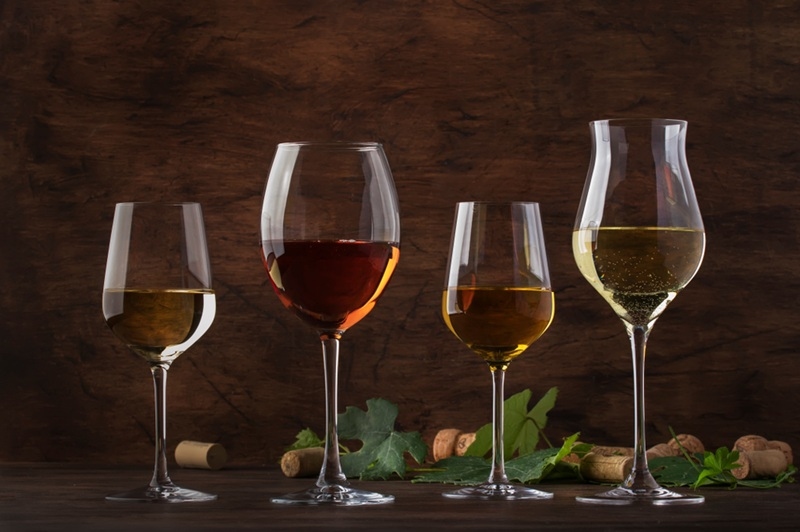Carménère Wine: Unravel the Beautiful Flavors of this Drink

Image: Liquor.com / Laura Sant
Carménère, once a nearly extinct grape variety, has found new life and popularity in the vineyards of Chile. Its journey from the vineyards of Bordeaux to the Andes foothills is a tale of rediscovery and transformation. For wine enthusiasts and casual drinkers alike, Carménère offers a rich and multifaceted tasting experience that is both intriguing and rewarding.
A Brief About Carménère
Carménère is described as a wine between Merlot and Cabernet Sauvignon in terms of flavor profile. It combines the softness and fruit-forward nature of Merlot with the structure and complexity of Cabernet Sauvignon. This unique combination makes Carménère a versatile wine that appeals to various palates.
Learn More: Natural Wine Vs Organic Wine: Learn The Key Differences
What Does Carménère Taste Like?
Dark fruits dominate the primary flavors of Carménère. Blackberry is one of the most prominent flavors, providing a sweet and tart backbone. Black Plum adds a juicy, fleshy component, enhancing the wine's fruitiness. Cherry has darker fruit flavors that offer a bright, slightly acidic contrast.
Beyond the primary fruit flavors, Carménère is known for its distinctive secondary notes. Green Pepper is a signature characteristic of Carménère. This vegetal note adds a layer of complexity and freshness. Paprika is a subtle spicy undertone that complements the wine's fruity and vegetal components. Tobacco in some Carménère wines, you might detect a hint of tobacco, adding an earthy richness.
Tertiary Flavors
As Carménère ages, it develops more complex tertiary flavors. Chocolate older Carménère wines exhibit cocoa or dark chocolate notes, enhancing the wine's depth. Coffee has a slight bitterness, and the roasted quality can emerge with age. Leather adds a rustic, savory element to the wine, making it more nuanced and exciting.
Cost Range of Carménère
Budget-Friendly ($10-$20)
In this range, you'll find many approachable and enjoyable Carménère wines. These wines offer straightforward fruit flavors and an excellent introduction to the varietal. They are perfect for everyday drinking and casual gatherings.
Mid-Range ($20-$50)
Spending a bit more will get you wines with greater complexity and depth. Mid-range Carménère wines come from more prestigious vineyards and benefit from better winemaking techniques. These wines offer a more balanced and refined flavor profile, with well-integrated tannins and a longer finish.
Premium ($50 and above)
Carménère wines are made from the best grapes and aged for extended periods at the premium level. These wines have exceptional quality, depth, and aging potential. Premium Carménère wines are suitable for special occasions and can be cellared for several years to develop even more complexity.
Food Pairings with Carménère

Grilled Meats
The dark fruit and spice notes in Carménère make it an excellent match for grilled meats. The wine's robust flavors can withstand grilled meats' intense char and smokiness, whether it's a juicy steak, lamb chops, or pork ribs. The wine's acidity helps cut through the meat's richness, creating a balanced and satisfying pairing.
Roasted Vegetables
Roasted vegetables, particularly those with earthy and sweet flavors, pair wonderfully with Carménère. Think roasted bell peppers, mushrooms, eggplant, and zucchini. The wine's fruitiness complements the vegetables' natural sweetness, while its earthy and spicy notes enhance their roasted flavors.
Spicy Cuisine
Carménère's peppery undertones make it a great companion for spicy dishes. Whether Mexican cuisine with its bold spices and flavors or Indian dishes with their complex spice blends, Carménère can hold its own. The wine's fruitiness provides a refreshing contrast to the heat, while its spice notes harmonize with the dish's flavors.
Cheese Platters
A well-curated cheese platter is always a delight, and Carménère pairs exceptionally well with various cheeses. Aged cheeses like Gouda, Manchego, and even a sharp Cheddar work beautifully with the wine's rich flavors. The cheese's creaminess complements the wine's smooth texture, while the cheese's savory notes highlight the wine's fruit and spice.
Dark Chocolate
Pairing Carménère with dark chocolate is a treat for those with a sweet tooth. The wine's dark fruit and chocolate notes make it a natural match for dark chocolate desserts. The bitterness of the chocolate and the sweetness of the wine create a harmonious balance that is both indulgent and satisfying.
Check This Out: Discover the flavors of New Zealand wine in Hawke's Bay
Essential Things to Know About Chilean Wine
Diverse Climates
Chile's wine regions benefit from a wide range of climates, from the cool coastal areas to the warmer inland valleys. This diversity allows for the production of various wine styles and grape varieties. The cool climates are ideal for white wines and lighter reds, while the warmer regions produce rich, full-bodied reds.
Sustainability
Chile is a global leader in sustainable viticulture. Many Chilean vineyards practice organic and biodynamic farming, focusing on environmental stewardship and natural winemaking techniques. This commitment to sustainability protects the environment and enhances the quality and character of the wines.
History
Wine production in Chile dates back to the 16th century when Spanish colonists brought grapevines. The wine industry has since evolved, with significant influences from French, Italian, and other European winemaking traditions. Today, Chile is recognized for its high-quality wines and innovative winemaking practices.
Terroir
The concept of terroir, which encompasses the climate, soil, and topography of a vineyard, plays a crucial role in Chilean wine. From the mineral-rich soils of the coastal regions to the alluvial soils of the valleys, Chilean wines express a sense of place that is integral to their identity.
Varietals
While Carménère stands out, Chile excels in producing various varietals. Cabernet Sauvignon, Merlot, Syrah, and Sauvignon Blanc are among the most notable. Each varietal benefits from Chile's diverse terroir and climate, resulting in wines that are both expressive and high in quality.
Detailed Carménère Information by Region

Maipo Valley
Maipo Valley is considered the heart of Chilean wine production. Located just south of Santiago, this region is known for its premium red wines, particularly Cabernet Sauvignon and Carménère. Wines from Maipo Valley are elegant and complex, with a balance of fruit and spice. Expect flavors of dark berries, green pepper, and a hint of chocolate. The wines have a smooth texture with well-integrated tannins. The Mediterranean climate of Maipo Valley, with warm days and cool nights, is ideal for growing high-quality grapes. The soils are well-draining and range from sandy to gravelly, contributing to the concentration and intensity of the wines.
Cachapoal Valley (Peumo)
Peumo, a sub-region of Cachapoal Valley, is renowned for producing some of the finest Carménère in Chile. The area benefits from a warm climate and diverse soils, making it ideal for this varietal. Peumo Carménère wines are rich and full-bodied, with intense fruit flavors and smooth tannins. Expect notes of blackberry, plum, green pepper, and a touch of spice. The climate in Peumo features significant temperature variation between day and night, which helps to preserve the grapes' acidity and develop complex flavors. The clay-rich soils retain moisture, supporting the growth of healthy vines and enhancing the wine's depth.
Colchagua Valley (Apalta)
Apalta, a prestigious sub-region within Colchagua Valley, is one of Chile's most highly regarded wine-growing areas. It is known for producing exceptional red wines with great aging potential. Apalta Carménère wines are known for their depth and complexity. They feature prominent dark fruit flavors, such as blackberry and cherry, spice, chocolate, and coffee notes. These well-structured wines can develop additional layers of flavor with age. Apalta benefits from diverse microclimates and alluvial soils. The region's natural amphitheater shape provides excellent sun exposure and drainage, producing concentrated and expressive wines.
Rapel Valley
Rapel Valley encompasses the Cachapoal and Colchagua valleys, making it a significant region for Carménère production. The valley's diverse terroir and climate conditions are ideal for growing a variety of grape varietals. Wines from Rapel Valley are well-structured, with a good balance of fruit and acidity. They exhibit black fruit, green pepper, and spice flavors with a smooth and enjoyable finish. The mild climate of Rapel Valley, with ample sunlight and varied soils, provides ideal conditions for viticulture. The combination of warm days and cool nights helps to develop the grapes' flavor and complexity while preserving their natural acidity.
Also Read: Uncorking the Future: Wine Trends to Savor in 2024
Conclusion
Carménère is a captivating wine with a rich tapestry of flavors and aromas, making it a favorite among wine enthusiasts. Its journey from France to Chile has resulted in a unique and versatile wine. Whether exploring budget-friendly options or indulging in premium selections, Carménère provides a versatile and enjoyable tasting experience. As you discover Carménère, you'll find that it embodies the spirit and innovation of Chilean winemaking, offering a delightful and memorable experience in every glass.
This content was created by AI
No keywords available
-1717753922-r.jpg)


